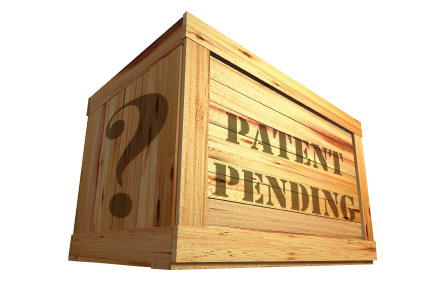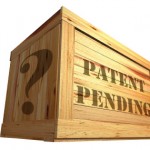
Do Startups Need Patents? Rigorous Study Presents Real Data on Startup Company Patenting Behavior
 As an IP Strategy advisor, I am often asked by the leadership of startup companies what the return on investment is from patenting. While I can confidently provide recommendations as an expert, my opinions are anecdotal based on my almost 20 years experience as an IP professional. Certainly, I have advised a number of startup companies over the years for which comprehensive patent coverage was critical to financial and market success. On the other hand, I have advised a much larger number of startup companies over the years where patenting made little difference to their fortunes.
The subjective nature of IP advice holds for other patent professionals. Our respective years of experience results in tacit knowledge that becomes "expertise." This expertise guides clients to us for advice and allows them to trust in our counsel. Missing from my knowledge
As an IP Strategy advisor, I am often asked by the leadership of startup companies what the return on investment is from patenting. While I can confidently provide recommendations as an expert, my opinions are anecdotal based on my almost 20 years experience as an IP professional. Certainly, I have advised a number of startup companies over the years for which comprehensive patent coverage was critical to financial and market success. On the other hand, I have advised a much larger number of startup companies over the years where patenting made little difference to their fortunes.
The subjective nature of IP advice holds for other patent professionals. Our respective years of experience results in tacit knowledge that becomes "expertise." This expertise guides clients to us for advice and allows them to trust in our counsel. Missing from my knowledge
Hey “Patent Experts”: How Do You Like Groupon’s Patent Now? *Crickets*
Yesterday's announcement of the firing of Groupon's CEO and the hope for a rebirth of the company's business model brought to mind a post that I wrote a couple of years ago railing against the self-interested opinions of "patent experts" on why Google offered $6 Billion for Groupon in late 2010. Re-reading the post in the rear-view mirror, it is more clear than ever that Google made the offer for the precise reason I set out below in December 2010:
Google, and other acquirers, buy business models, not patents. As we strategy-focused IP people have been saying for years, a patent is worthless unless it covers a viable business model–either yours or one you want to own. Google is interested in Groupon because it offers them an established business model in an area that fits into their long term business strategy. Are the patents nice to have? Of course,
Is Traction the New IP for Startups? Maybe Not for Yours.
"Traction is the new IP." This emerging mantra results in many startup CEOs eschewing the traditional path of patent and other forms of IP protection. While I am aware of no rigorous studies conducted to date, anecdotal information indicates that startup entrepreneurs are increasingly saying no to patents, and likely to other forms of IP. Instead, these entrepreneurs first seek to validate their business models and then follow business plans focused on generating recurring revenue, often avoiding altogether the step of protecting their business idea or product with IP. From my own interactions with startup CEO's, I can confirm that the pendulum has swung very far to the "IP is worthless" side of things. But, is this emerging conventional wisdom actually correct? There is no doubt that over the years far too many startup company resources have been spent on patents and other forms of IP protection (many of
Lean Startup Methodology: How Patenting Decisions Fit into this New Business Framework
One of the first questions start up entrepreneurs usually ask sounds something like this: “Is it worth the effort and expense to get a patent on this business idea?” In countless conversations with clients in my years as a patent attorney, I could usually articulate multiple reasons why the person seeking to to start a new business venture unequivocally needed to file a patent application as soon as possible. Moreover, I could recite a litany of ills that could follow from failing to follow my advice. Following this conversation, I could typically expect a fat check from the client, whereupon I would dutifully draft strong patent on the subject invention. It was a nice living. These days, I work as a startup technology company CEO and look at patents much differently than I did in the past: as a consumer of patent services myself, I now examine patenting issues from
Patents–Who Needs Them? Not Most Startup Entrepreneurs.
 A recent article in TechCrunch indicates that entrepreneurs are less likely to file patents than in the past. Nonetheless, there remain countless patent lawyers and agents who will argue convincingly that an entrepreneur must obtain a patent in order to succeed and who will take their $5-15K to file a darned good patent application that won't provide them a bit of business value in the long run. Even worse, the resources expended in the patent process robs the entrepreneur of needed cash that will allow them to gain customers, and of their most valuable asset: time. But when the only tool you have is a hammer, everything looks like a nail--which is why those still in the business of writing patent applications will continue to make their case to entrepreneurs (and investors) who lack the domain expertise to
A recent article in TechCrunch indicates that entrepreneurs are less likely to file patents than in the past. Nonetheless, there remain countless patent lawyers and agents who will argue convincingly that an entrepreneur must obtain a patent in order to succeed and who will take their $5-15K to file a darned good patent application that won't provide them a bit of business value in the long run. Even worse, the resources expended in the patent process robs the entrepreneur of needed cash that will allow them to gain customers, and of their most valuable asset: time. But when the only tool you have is a hammer, everything looks like a nail--which is why those still in the business of writing patent applications will continue to make their case to entrepreneurs (and investors) who lack the domain expertise to
A Startup Company’s Experiences with Open Innovation-Part 2: Adventures of a Chief Frog Kisser
A Startup Company’s Experiences with Open Innovation-Part 1: Dealing with a Large Company Having Small Innovation Goals
For the past several months, I have been at the helm of Evgentech, a startup company with game-changing battery charging methodology. Our technology was developed by young men who did not come from a traditional engineering background and, even then, their discovery was a serendipitous result of the co-founders’ recognition of a new principle stemming from investigations initially directed toward something wholly different from battery charging. Put simply, Evgentech’s technology would not have been found if anyone--outsider or not--would have been looking for it. We are now bringing to market the first truly new battery charging paradigm in over 100 years. To put things in perspective, with Evgentech's technology, you will be able to charge your batteries in a fraction of the time possible with existing battery charging methodologies, which means you can charge your iPhone to "full" in as little as 20 minutes, as compared to the about 3-5
Open Innovation Insights: 5 Biggest IP Legal Mistakes Small Companies Make When Working with Large Companies
Open Innovation guru Stefan Lindegaard recently asked me what the biggest IP legal mistakes small companies make when they are working with large companies. This is a subject very near and dear to my heart, as I am currently "moonlighting" as GC of a start up energy company that is moving toward licensing our technology into large companies. Also, as a senior IP lawyer at a multi-national consumer products company, I was on the other side of such deals on more occasions than I can count. Prior to that, I was a law firm partner representing large and small corporations in patents and licensing issues, and in doing so, I now realize that I killed more deals than I ever facilitated, a situation that is more typical of law firm lawyers than it should be, unfortunately. In view of this multi-faceted experience, I present this list of the 5 most
We’re Measuring the Wrong Things: Inventiveness and Patents Do Not Equal Innovation
Few things infuriate me more than supposed experts who make statements along the lines of "patents are critical to innovation." I have avoided stating my views widely in this forum because I didn't want to get into a contest of one upmanship with my patent lawyer peers. However, in the last couple of weeks, several pieces of information have hit my radar screen that make this seem like the right time to go public with my views. Let my position be very clear: we create a false dichotomy when saying "innovation is not possible without patents." The issue is much more complex and nuanced than this: in a particular instance, patents may be critical to innovation, but they might also be only slightly important or--likely in the majority of situations--they might be wholly irrelevant to innovation. (I talk more about this in this recent interview in Innovation Management


